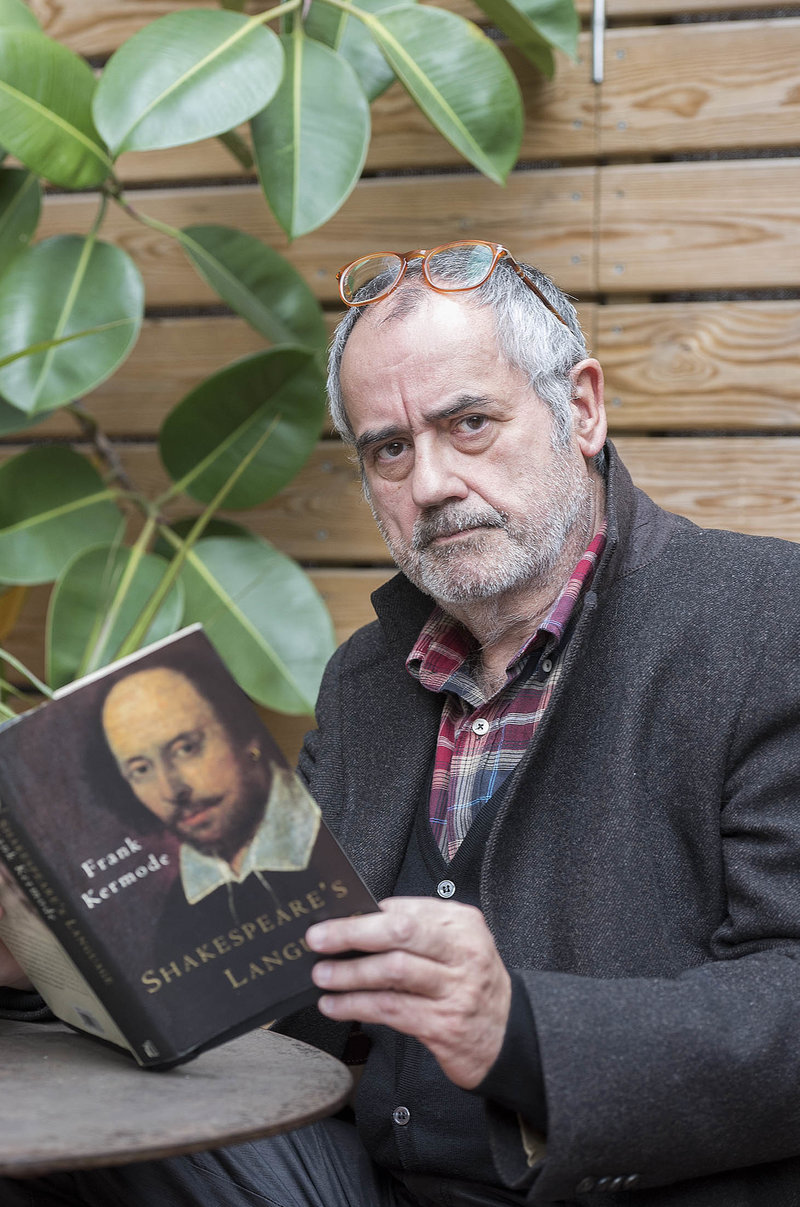You have translated nine Shakespeare plays.
Yes, and I am now working on the 10th, Richard III. This translation was commissioned three or four months ago, and so the deadline is in September. That gives me practically a whole year. It is essential to be able to take my time. However, that is not always the case. When Salvador Oliva translated Shakespeare's complete works for dubbing of the BBC series for Canal 33, he had to do it in a crazy rush.
You've also taught translation at the university, but when you started there was no such a degree.
Exactly, but I have always been interested in translation, literature, and languages since I was a boy. I spent a year and half in London studying English, in the '70s, then two years in Manchester, in '89-91, as a language assistant. At that time I was already working in translation, although not for the stage.
You've also done a lot of translations for TV dubbing.
It was a good learning experience; it helped me practise dialogues and was useful for when I started translations for plays. When Kenneth Branagh's Much Ado about Nothing premiered in Barcelona, I was commissioned to do the Catalan translation, which was my first Shakespeare.
You don't like to use archaic words. How do you approach your translations?
Modern language is the best way to make it accessible to audiences. When translating Shakespeare, obviously you know it would be silly to try to match him, but you have one advantage at least: you can make your text more accessible to present day audiences. In the original, Shakespeare was meant for the English speaking audiences of that time. Trying to translate Shakespeare to sound old, like the Catalan equivalent of the English in Shakespeare's time, I think is the worst way to approach it; it would be a betrayal.
Apart from the language, there are references to Elizabethan society and politics, which a modern person might not be aware of.
References to facts that have changed over the centuries is even a problem for English audiences. Yet, there are two advantages. Firstly, you can make the text more understandable. One of the most gratifying experiences I've had as a Shakespeare translator was once when an English person who lives in Barcelona, after seeing a Shakespeare play I had translated, told me: “I understood Hamlet for the first time!“ The other advantage is that you have the footnotes explaining everything. So as soon as there is a sentence or construction that doesn't correspond exactly to modern English, you have your footnote saying what it means, so you don't have to worry about the meaning because it's all given to you below, and you can concentrate on the recreation of the text.
How do you deal with metre, verse, rhyme?
Something always gets lost in translation, as they say. But I use techniques that at least maintain the illusion of poetry. I always translate verse into verse and prose into prose.
Have you written poetry yourself?
Not seriously, I mean not for publication. You don't necessarily have to be a poet to be able to translate verse. In fact, being a poet doesn't make you a competent translator, either. It's about having that skill, like having a good ear for music.
Iambic pentameter mimics natural English speech rhythms, but Catalan is not stressed in the same way.
I do try to recreate the verse –the closest rhythm to iambic pentameter that Shakespeare used is the casilla. My translations still preserve rhetorical value, while still sounding natural to the audience.
Some translators have a very strong personality that shows up in their translations. What is you own style as a translator?
It's true that every translator has his or her own style. Josep Maria de Segarra's translations of Shakespeare sound very much like his own writing. They sound great, but sometimes you feel like it's more Segarra than Shakespeare. But I think that one of the most important priorities of a good translator is to be as invisible as possible.
What else do you consider important when translating?
Something I enjoy and consider necessary is working with the directors and actors, to get feedback. It is important to hear the text read out loud, and I always discuss the text with the director and we negotiate changes. This is why I prefer translating plays rather than anything else, because of this process that comes after you finish the solitary process of translation.
Some say Shakespeare would be a TV series scriptwriter if he lived today.
Probably. I love series, there are some brilliant ones these days. There is a great book called, El món un escenari, about the influence of Shakespeare on audio-visual productions.
Are you participating in other activities related to Shakespeare Year?
I've been invited to give some talks, and participate in other events, but translators are not usually prominent in the media.
Do translators get enough recognition?
In the publishing field things are slowly improving. Some publishers have at least now started to include the name of the translator on the cover, which might seem obvious but doesn't always happen very much. Yet, it's remains a badly paid job, whether your name is on the front cover or not. However, at least it's some acknowledgment of your work.

